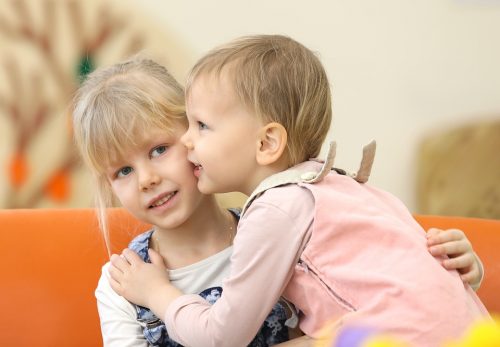One of the most difficult challenges that moms undergo is keeping up with their children’s overall well-being. More often than not, it is the mother’s traditional role to physically look after her children even if she is a working mom. Nowadays, the physical aspect of a child’s well-being is not the only thing parents, especially the moms, should be worried about. Behavioral health’s challenges are now a big thing.
What Is Behavioral Health
This scientific study or concept is just the same as the term “mental health.” Behavioral health involves the behaviors and biology regarding the person’s mental aspect. Technically speaking, mental health is only after the biological aspect of our psych well-being. Behavioral health includes even the branches or contributions to our mental ability such as substance abuse, behavior, and other outside factors.
Professionals at BetterHelp explains that behavioral health is more about a person’s behavior and conscious choices that can significantly affect his overall health. Addiction falls into this realm. Disorders under behavioral health are those which are related to one’s decision and his inability to resist the urge of doing something despite the negative consequences that such actions bring. “Behavior is an aspect of identity that can be changed, so “behavioral health” might be a more hopeful concept for those who experience mental illness or addiction and who may have felt that these diseases were permanent parts of their lives.” Elana Premack Sandler L.C.S.W., M.P.H says.
Behavioral Health In Kids

Source: pixabay.com
It is entirely normal that children have tantrums and sometimes become aggressive towards others. That is because they are at a phase of trying to identify and control their emotions. However, these disruptive behaviors should not be considered “normal” or even “part of childhood years” when these become severe or persist over time.
Conduct disorders in kids are often characterized by losing their temper, being angry, annoying others intentionally, or arguing with the elders frequently and repeatedly. It can also be manifested through frequent lying, making up of stories, stealing even the small things, bullying others, and even showing cruelty towards pets and animals.
Behavioral Health In Teens
When it comes to your teenage sons and daughters, the most common manifestations of a behavioral disorder are substance abuse, addiction, and obsessive-compulsive disorder. General symptoms are getting angry and irritated easily, blaming other people or their selves most of the time, questioning authority every time, and having difficulty in concentrating or grasping even a basic frustration. “Set clear positive expectations.” says Kenneth Ginsburg M.D., M.S.Ed. He adds, “Insulate your children from the undermining messages swirling around them by reframing the negative hype.”
How To Help Without Putting Much Pressure
- Positive Parenting Techniques And Strategies

Source: pixabay.com
A child’s behavior can depend on how you discipline him at home. Pick and master the proper parenting style that suits your family and your kids. “In a safe environment, they trust adults completely and learn from them how to cope with what the world hands them.” Kathryn Seifert Ph.D. wrote. Figure how to properly establish a reward system for a good deed done while also condemning misdeeds. Be authoritative, learn how to say no, and don’t always give in on your child’s demands.
- Engage In Physical Activity With Your Children
Exercise and physical movements every day are shown to have a positive impact on one’s mental and physical well-being. However, telling your child to make it a habit to exercise and do physical activities is not that easy. It is better if you, as a parent, will accompany your child in exercising even if it is just a simple walk or jog in the park.
Think of it as an exercise for you as well. Don’t forget that a parent’s mental wellness is also an essential factor here. To properly guide our children, it is vital that we know how to care for our mental health too.
- Don’t Forget The Importance Of Family Bonding

Source: pexels.com
Turn your home into a caring, warm, and loving one that will foster communication between you and your child. Go out once in a while with the whole family to strengthen your relationship. Establish authority as a parent but also acknowledge and highlight your child’s role in the family.
- Trace The Problem
Don’t always reprimand your child without knowing what the problem is. Remember that there is always a reason (it may be an immediate reason or a distant one from past events) why your child is acting like that. Listen to him whatever he is saying. Be observant if there is anything that he needs help about. In other words, resolve the root cause instead of just dismissing his outburst. Always make sure to understand things first before jumping into conclusions.
Parents play the most crucial role in restoring their children’s lives into a healthy track. It’s critical that you are very keen on these symptoms. Learn how to distinguish what is normal from repetitive and disruptive. Prevention is always better than cure. As early as now, take the lead but don’t also forget to consider professional help especially when it comes to your sons and daughters.
